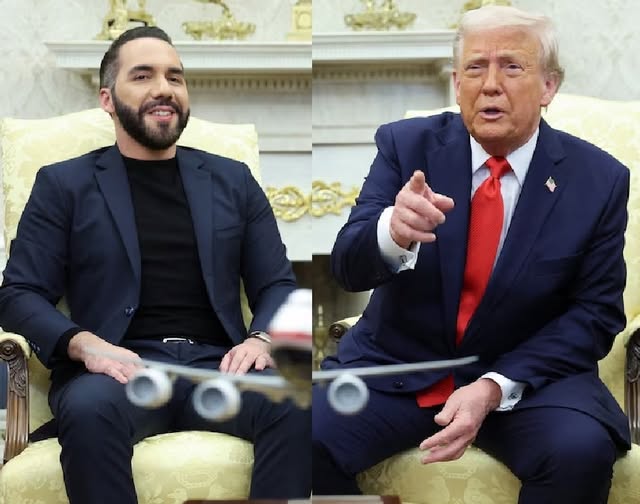
Washington, D.C., April 15, 2025 – A White House meeting on April 14 between President Donald Trump and El Salvador’s President Nayib Bukele has deepened the controversy over Kilmar Armando Abrego Garcia, a Maryland father deported to El Salvador’s CECOT mega-prison. Despite a U.S. Supreme Court ruling last week ordering the government to “facilitate” his return, Bukele called the idea “preposterous,” labeling Abrego Garcia a “terrorist” and refusing to release him, even within El Salvador. Trump supported Bukele, criticizing CNN’s Kaitlan Collins for raising the issue and framing the decision as keeping “criminals” out.
Abrego Garcia, a Salvadoran immigrant who lived in Maryland for 15 years, was deported on March 15 despite a 2019 immigration court order protecting him from deportation due to gang threats against him and his family’s pupusa business. The Trump administration initially admitted in court that his deportation was an “administrative error” but later claimed he was an MS-13 member—a charge his lawyers and family deny, noting he has no criminal record. The Supreme Court’s ruling came after advocates argued his deportation violated due process, yet the administration has not acted to bring him back.
Bukele, who has accepted over 200 deportees, mostly Venezuelans, since January under the 1798 Alien Enemies Act, doubled down during the meeting, stating that releasing Abrego Garcia would undermine El Salvador’s safety. Trump even suggested deporting U.S. citizens to Salvadoran prisons, a proposal legal experts say is unlawful. Senator Chris Van Hollen (D-MD) has requested a meeting with Bukele to secure Abrego Garcia’s release and plans to travel to El Salvador if there’s no progress by midweek.
Public reaction on X is polarized—some users decry the situation as “state-sanctioned cruelty,” while others support Trump’s stance, believing Abrego Garcia’s deportation is justified. The case underscores tensions in Trump’s mass deportation policies, which have intensified since his January 2025 national emergency declaration at the southern border. As of April 15, Abrego Garcia remains in CECOT, with no clear resolution despite the Supreme Court’s mandate, fueling debates over the human cost of these policies and the administration’s disregard for judicial rulings.


